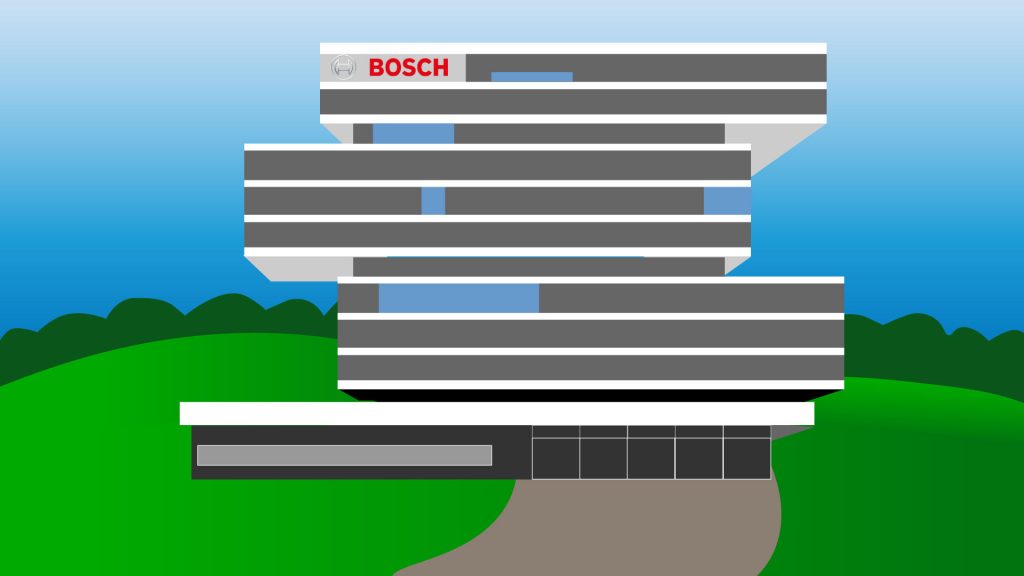To become an ESR in the ITN Windmill project, I left my job and life in Brazil and moved to Germany. Today I will my PhD travel story by explaining how the moving process was, what cultural differences, weather challenges, and languages I had to adjust to and how the adaptation went. I will also describe the support I received from my host institution Robert Bosch GmbH.
It is interesting to realize that things in life are extremely random and can lead you to extremely different paths. In chaos theory, such sensitiveness dependency on initial conditions where a small change in one state of a deterministic non-linear system can result in large differences in a later state is famously denominated as a “butterfly effect”. This analogy refers to the idea that a butterfly’s wings might create tiny changes in the atmosphere that may ultimately alter the path of a tornado or delay, accelerate, or even prevent the occurrence of a tornado in another location. The mathematician and meteorologist Edward Lorenz materialized these ideas in his work called “Does the flap of a butterfly’s wings in Brazil set off a tornado in Texas?”

My PhD is a perfect example of chaos theory. At first, I had no plans to go to Europe for my PhD. But one boring Sunday evening, I saw a LinkedIn connection liking a post about “ML in communication PhD positions” in something called “ITN Windmill”. This was interesting. Not only was the main PhD topic extremely related to my field, but out of 14 available positions, the one in Bosch was still open. I submitted the application in less than 10 minutes on that same day. Well, approximately 4 months later, I arrived to Stuttgart, south of Germany, to start my PhD.
Some people can advocate that the randomness could be explained by the LinkedIn AI recommendation, which is a fact since I was looking for PhD positions indeed. However, different small decisions could have happened.
For example, I could have…
- ignored the feed information,
- just scrolled the screen too fast and not seeing the available link,
- saved the link for another time (and forget about it, as it usually happens),
- or simply the position could have been taken by someone else since it was one of the last ones still available.
You can also say that the same set of events could also have been applied to my random LinkedIn connection that liked the post in the first place, thus escalating on a Mandelbrot fractal pattern.
Every small event like the ones I cited would lead me to a completely different path from the one I’m in right now. It is insane to think too much about it, and it is just as insane to think that it’s just a ‘coincidence’. The famous philosopher Nasim Nicholas Taleb claims the idea of “Narrative fallacy”, where our brain continuously creates logical chains of cause and effect to make the reality simpler or understandable. We are inundated with so much sensory information that our brains have no other choice; we must put things in order so we can process the world around us.
Nevertheless, here I am. Extremely happy with my life and work in Germany. This was indeed a pleasant surprise. So, if you are looking for a PhD (or for anything else), don’t ignore random opportunities you see on the internet, they might model your whole future (just make sure that they are legitimate).
The moving process to Germany I would technically say was ‘Pareto optimal’. The company that hosts my PhD project, Robert Bosch GmbH, provided full support for my visa application. They also found an extremely good apartment where I am currently living in. The process was indeed very smooth: even the city hall registration and residency permit application were done with the help of great people from Bosch. My teammates are always very gentle to explain every internal process and they switch to English whenever I’m present. The Bosch infrastructure makes me feel I’m in the future. If you don’t believe me, just look up “Bosch Renningen” on Google. Another great thing is that I am surrounded by leading tech companies in my everyday work. I discuss ideas with great players in the market and keep an eye on the future steps of the industry. This is also a fantastic networking opportunity, which is important if you want to follow a career in the industry.

Regarding cultural aspects, coming to Germany didn’t feel that different. I think it is one of the advantages of being Brazilian. We were formed by different cultures from different nationalities, Germany being one of them. Because of that, I knew a lot of food, drinks, religion, customs, and even Oktoberfest from Brazil.
The weather in Germany, however, is a challenge. I was born and raised on the coast of the Northeastern Brazilian region, so I have always been surrounded by beaches and sunny weather all year long. So the fairly cold Germany was a shock. But there is silver lining here: Stuttgart is one of the sunniest cities in Germany. Even in the winter there’s quite a lot of sunlight, so I actually feel pretty comfortable during the winter months.
The language is another challenging issue. German is not so easy and it’s quite different from Latin languages I was used to, since I speak Portuguese and French. The bright side is that people in Stuttgart are very friendly. They communicate in English whenever it’s possible and they are always available to help. Bosch also supports German courses, so that I can get reimbursed for any expense related to the German language learning.
But of course, nothing is perfect. I was somehow surprised by the German bureaucracy: there is so much paperwork, letters and process stages. And filling out my tax declaration is actually more complicated than in Brazil! Doing a PhD for a company might also require to be more careful regarding data sharing. There is always an internal procedure before anything that I publish, including papers or coding. I feel that at university, one can have more freedom regarding such process.
When it comes to the Windmill program, I have nothing to complain about. We periodically receive trainings where professors from best universities around Europe give us lectures and discuss ideas. There is also full financial support for publications, training, visiting research, etc. Furthermore, my PhD supervisors from both Bosch and AAU regularly (weekly and bi-weekly respectively) provide their feedback and insights about my work. My only feeling regarding the program is that I want to do my best in order to compensate for the full support I have been receiving.
I hope I could give some insight (or any useful information) and feel free to contact me in case you’d like to know more about Bosch or the ITN Windmill program. I’d be happy to talk to you.?
